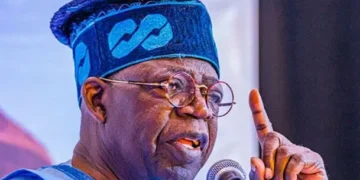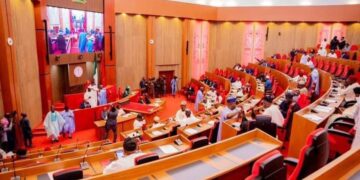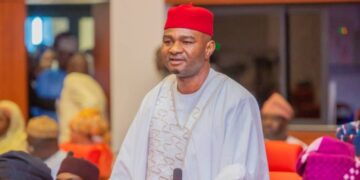By Eshioromeh Sebastian, Abuja
The Resource Centre for Human Rights and Civic Education (CHRICED) has issued a strong condemnation of Senator Onyekachi Nwebonyi’s recent proposal to demolish indigenous settlements near Nnamdi Azikiwe International Airport in Abuja, warning that such actions would deepen Nigeria’s housing crisis and further marginalise vulnerable communities.
The statement stems from a bill presented by Senator Nwebonyi on 14 May 2025, in which he urged the Federal Capital Territory (FCT) Minister, Nyesom Wike, to clear what he described as “eyesores” along the airport road.
The senator argued that the settlements project a negative image of Nigeria to international visitors. However, CHRICED has in a statement on Thursday, dismissed this reasoning as callous, pointing out that the affected communities are home to generations of Abuja’s original inhabitants, many of whom are low-income earners with deep ancestral ties to the land.
“These are not illegal encroachments but long-standing communities with cultural and historical significance,” CHRICED stated. “Forcing them out without viable alternatives would be a gross violation of their rights and worsen the country’s already severe housing shortage.”
While the Nigerian Senate ultimately rejected Nwebonyi’s proposal following objections from other lawmakers, concerns remain over the continued threats facing indigenous settlements in the FCT.
Senator Adamu Aliero, a former FCT minister, added to these fears by suggesting that the disputed lands had already been allocated for development—a claim that raises questions about the legal status of the residents and the likelihood of future evictions.
CHRICED emphasised that forced demolitions contravene both Nigerian and international law, including Section 43 of the Nigerian Constitution, which guarantees citizens the right to own property, and the United Nations International Covenant on Economic, Social and Cultural Rights, which Nigeria has ratified. The group called on the Senate to go beyond merely dismissing Nwebonyi’s bill and instead pass a binding resolution prohibiting further demolitions in the FCT until a comprehensive human rights review is conducted.
“Urban development must not come at the expense of basic dignity,” the statement read. “The government must engage with affected communities, civil society, and urban planning experts to find inclusive solutions that do not leave vulnerable citizens homeless.”
The rights group also urged President Bola Tinubu’s administration to ensure that any relocation efforts strictly follow due process, including fair compensation and the provision of adequate alternative housing. Additionally, CHRICED called on the United Nations Permanent Forum on Indigenous Issues (UNPFII) to intervene, arguing that Abuja’s original inhabitants require international protection against unjust evictions disguised as development.
Civil society organisations and the global community were also encouraged to speak out against what CHRICED described as systemic harassment of marginalised groups. The group reiterated its commitment to defending human rights and social justice, stressing that Nigeria’s progress must be measured by how it treats its most vulnerable citizens.
“The government cannot prioritise urban aesthetics over people’s lives,” the statement concluded. “We demand policies that uphold the rights of all Nigerians, particularly those whose voices are too often ignored.”
The statement was signed by Comrade Dr. Ibrahim M. Zikirullahi, CHRICED’s Executive Director, who reaffirmed the organisation’s dedication to holding authorities accountable and advocating for inclusive governance.











































Discussion about this post